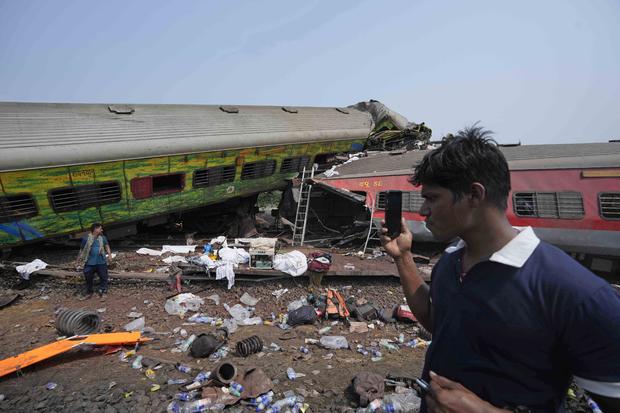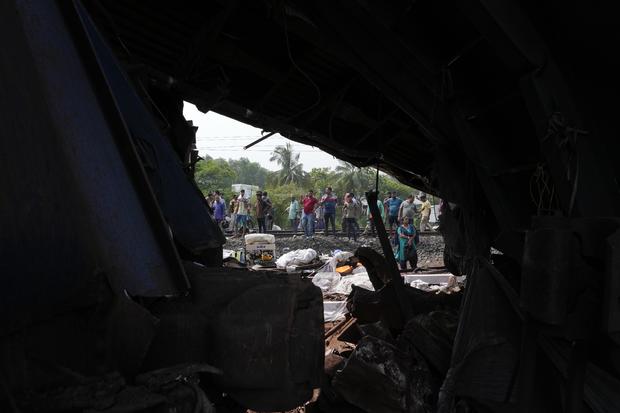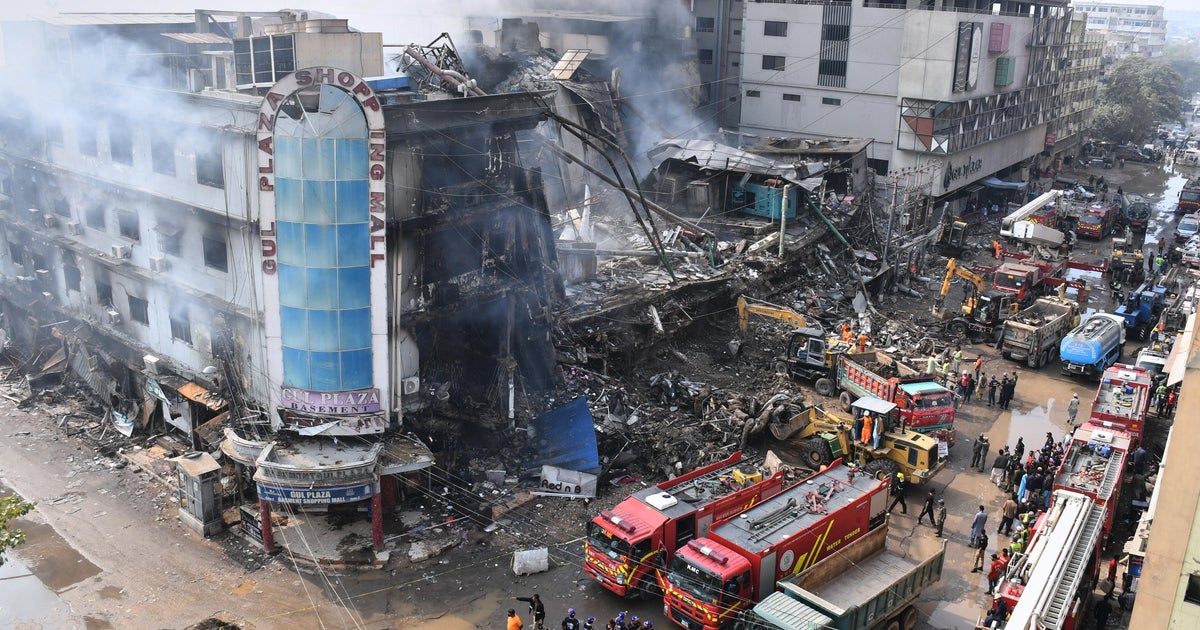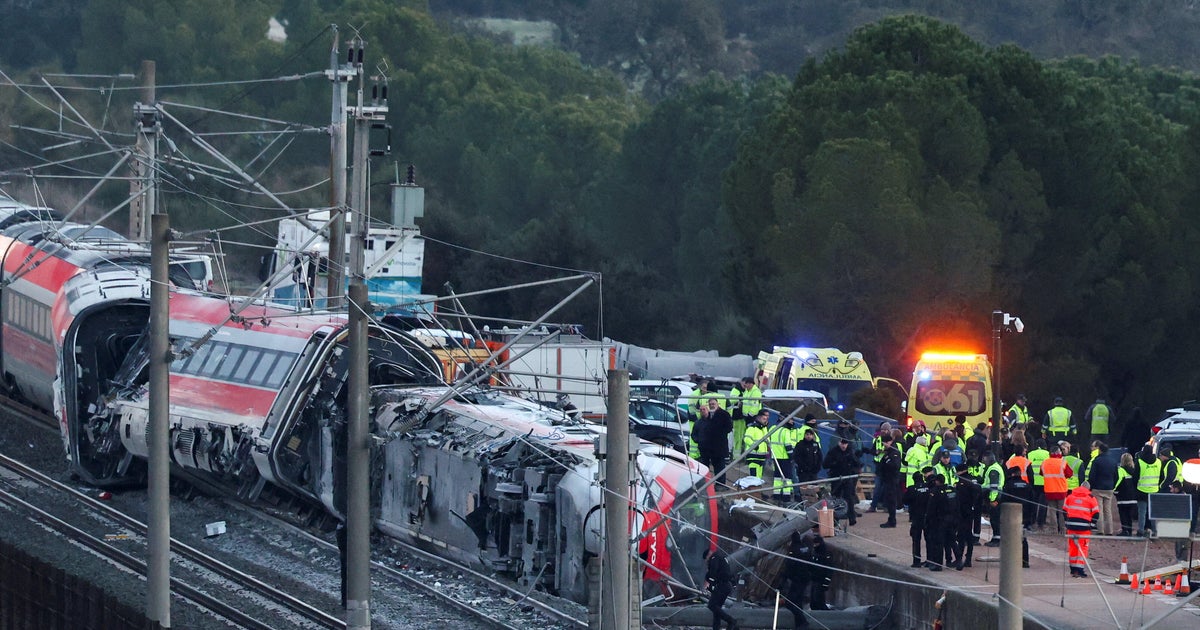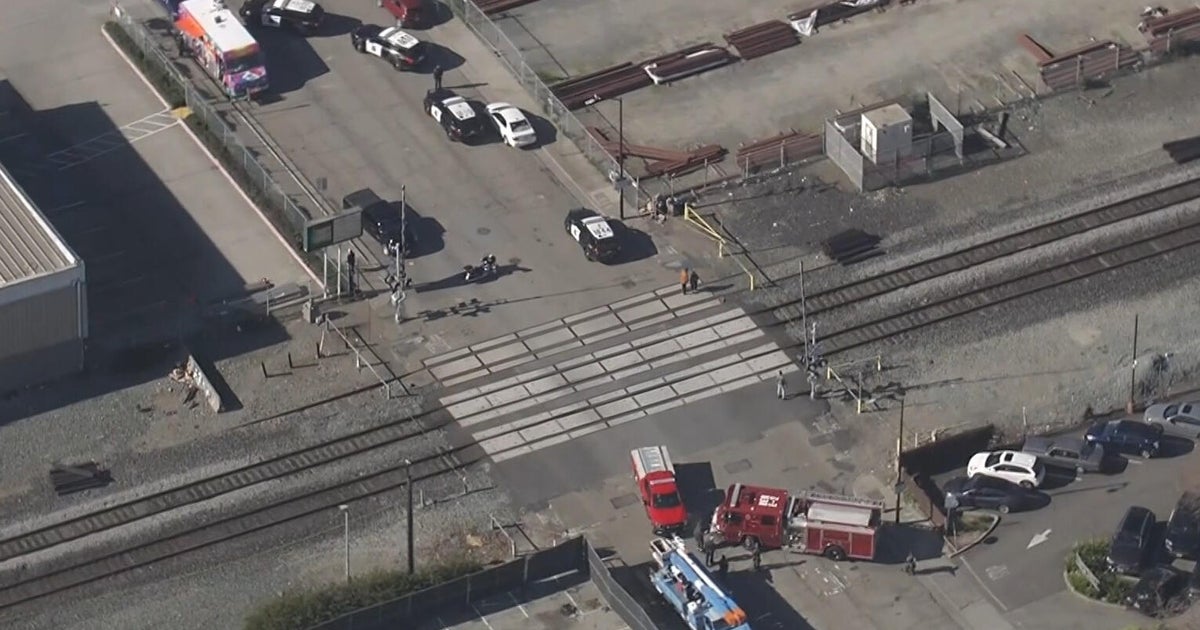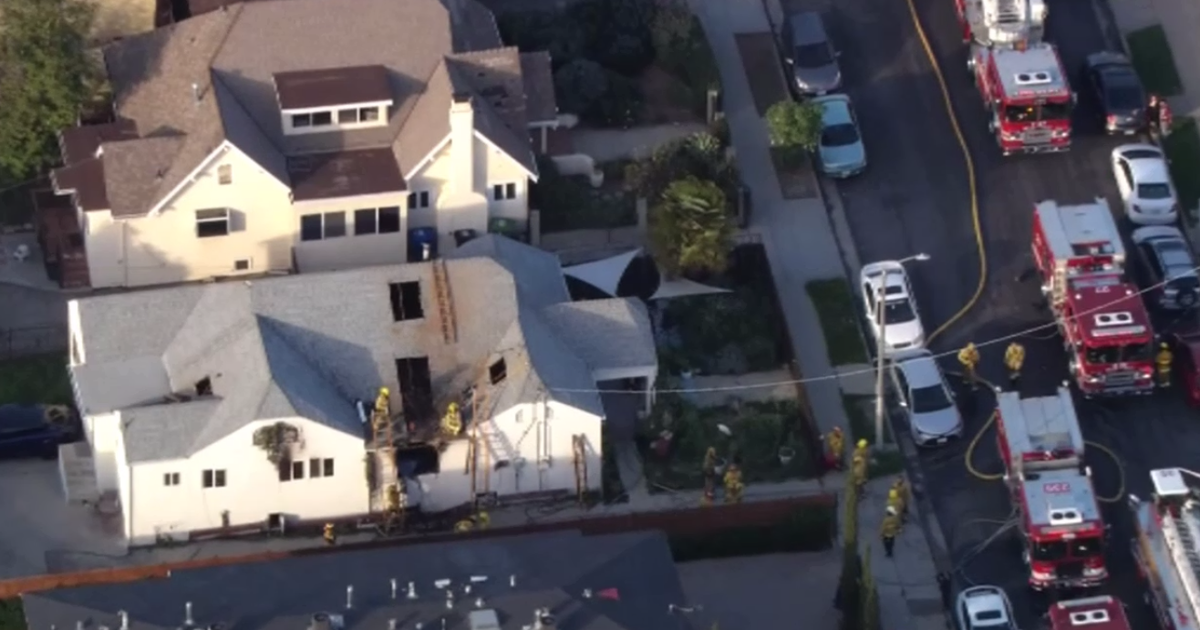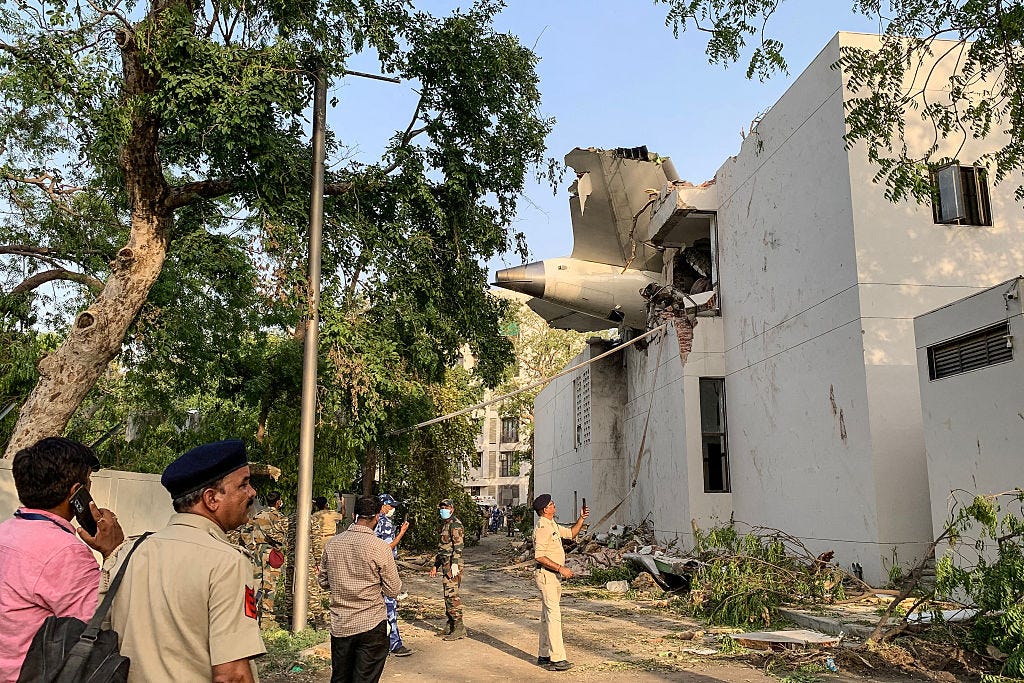Nearly 300 killed in one of India's deadliest train accidents
At least 288 people have been killed and more than 850 others injured in a train accident involving three trains in India's eastern state of Odisha, according to officials.
The death toll is expected to rise as more people are feared trapped inside the mangled train cars. Rescuers were cutting through iron compartments, and using sniffer dogs, in the search of survivors and bodies. On Saturday morning, the Indian army joined National Disaster Response Force (NDRF), police, and other rescue teams to find survivors.
"We are not very hopeful of rescuing anyone alive," Sudhanshu Sarangi, Odisha's Fire Services Chief told reporters on Saturday morning.
Odisha's Chief Secretary Pradeep Jena said more than 200 ambulances were in service, shifting the injured to hospitals. The surge of dazed and bleeding victims overwhelmed small local hospitals which were not used to such a large influx of high-trauma patients.
Footage from the accident site showed bodies lined up on tracks and the injured being shifted to hospitals while rescuers desperately looked through the overturned and jumbled metal train compartments. The state government has announced a day of mourning. At least three trains were involved in the accident on Friday night. There is no official version of the sequence of events.
But according to local news media reports and eyewitnesses, a passenger train, the Coromandel Shalimar Express, derailed and hit stationery goods train at about 6:50 pm local time – resulting in many coaches flipping over. Then after about 20 minutes, the Yeshvantpur-Howrah Superfast train, approaching the accident site, rammed into the derailed coaches on the adjacent track.
"As I stepped out of the washroom, suddenly the train tilted," passenger Vandana Kaleda told the Associated Press. "I lost my balance ... Everything went topsy turvy. People started falling on each other and I was shocked and could not understand what happened. My mind stopped working."
It's not clear why a second train approaching the accident areas was not stopped in time. But the Indian Railways has launched an investigation into the accident.
Amidst opposition calls for his resignation, India's Railway Minister Ashwini Vaishnaw called the accident "tragic" and said all focus, for now, remains on rescue and relief operations. He added that a high-level inquiry committee has been formed to find the cause of the accident. A separate investigation will be carried out by the Commissioner of Railway Safety, he said.
India's Prime Minister Narendra Modi, who visited the crash site Saturday, said he was "distressed" by the accident and that in the "hour of grief" his "thoughts are with the bereaved families." He has called a meeting of senior officials to review the situation, pledging "all possible assistance" for the victims.
The Railway Ministry has announced a compensation of about $12,200 for the families of the dead, $2,440 for the seriously injured, and $610 for those with minor injuries.
India has one of the largest railway networks in the world where an estimated 13 million people travel on trains every day. But despite recent huge investments in a bid to modernize, a large chunk of the country's railway infrastructure is old and aging.
The latest train disaster is one of India's worst in recent decades. In 1981, more than 800 people were killed when a passenger train derailed and fell into a river in the eastern state of Bihar during a cyclone. More than 300 people were killed in 1995 when Purushottam Express collided with a stationary train in central Uttar Pradesh state. In 2016, 152 people were killed when a passenger train derailed in the same state.
